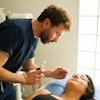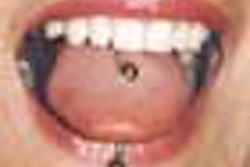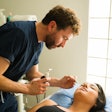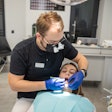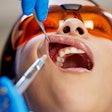
NEW YORK (Reuters Health), Aug 16 - Patients with advanced head and neck cancer survived just as well on experimental drugs in phase I trials as they did on FDA-approved standard therapies, a new report says.
There has been controversy over whether advanced cancer patients -- many of them desperate for any possible chance to get better -- are getting taken advantage of in phase I trials, or whether they can really benefit from experimental drugs.
But the findings suggest that doctors should consider referring their terminally ill patients to such trials, the authors say.
"We expect that (the results) will increase enrollment of these patients in phase I clinical trials," they said in their paper, published online July 27 in journal Clinical Cancer Research.
Dr. Ignacio Garrido-Laguna at the University of Texas M. D. Anderson Cancer Center in Houston and colleagues tracked 61 patients who had participated in 36 phase I trials over a five-year period. Fifty-nine had received FDA-approved drugs before enrolling in the trials. The researchers compared patients' progression-free survival on their most recent treatment with progression-free survival on the experimental phase I drugs.
Patients survived an average of 12 weeks on FDA-approved treatments and 10.7 weeks on experimental drugs before their cancer progressed -- outcomes that were not statistically different.
Four patients had some improvement in their cancer in response to the experimental drugs and 34 had stable disease during the drug trials. One patient died from a cause related to the treatment.
Because phase I trials are not supposed to test whether the drug actually works, "patients enrolled in them were rarely expected to derive benefit," the authors write.
That may be changing as researchers get more tools to match patients with the right drug for their type of cancer, possibly improving the odds that they'll benefit from the treatment, the authors say.
Still, some researchers and ethicists are wary of whether very sick patients are being given false hope.
"There are worries about whether people who are vulnerable in this way are able to give informed consent" to participate in a trial, Dr. Franklin Miller, a bioethicist at the National Institutes of Health in Bethesda, MD, who has written on phase I cancer trials, told Reuters Health. For researchers who are explaining drug trials to patients, "you have to be very careful," he said.
There is also the question of whether you can really tell if someone benefited from being in a phase I trial, Dr. Miller said, because there's no control group.
But Dr. Miller thinks that the desire to join a phase I trial is a natural one for people who are dying of cancer. "They've exhausted all the (treatments) that are available and standard," he said. If they want to keep fighting the cancer, he said, "there really isn't any better option for them. I think this is genuinely what many people want to do."
By Genevra Pittman
Source: link.reuters.com/zum23n
Clin Cancer Res 2010.
Last Updated: 2010-08-16 9:30:22 -0400 (Reuters Health)
Copyright © 2010 Reuters Limited. All rights reserved. Republication or redistribution of Reuters content, including by framing or similar means, is expressly prohibited without the prior written consent of Reuters. Reuters shall not be liable for any errors or delays in the content, or for any actions taken in reliance thereon. Reuters and the Reuters sphere logo are registered trademarks and trademarks of the Reuters group of companies around the world.

